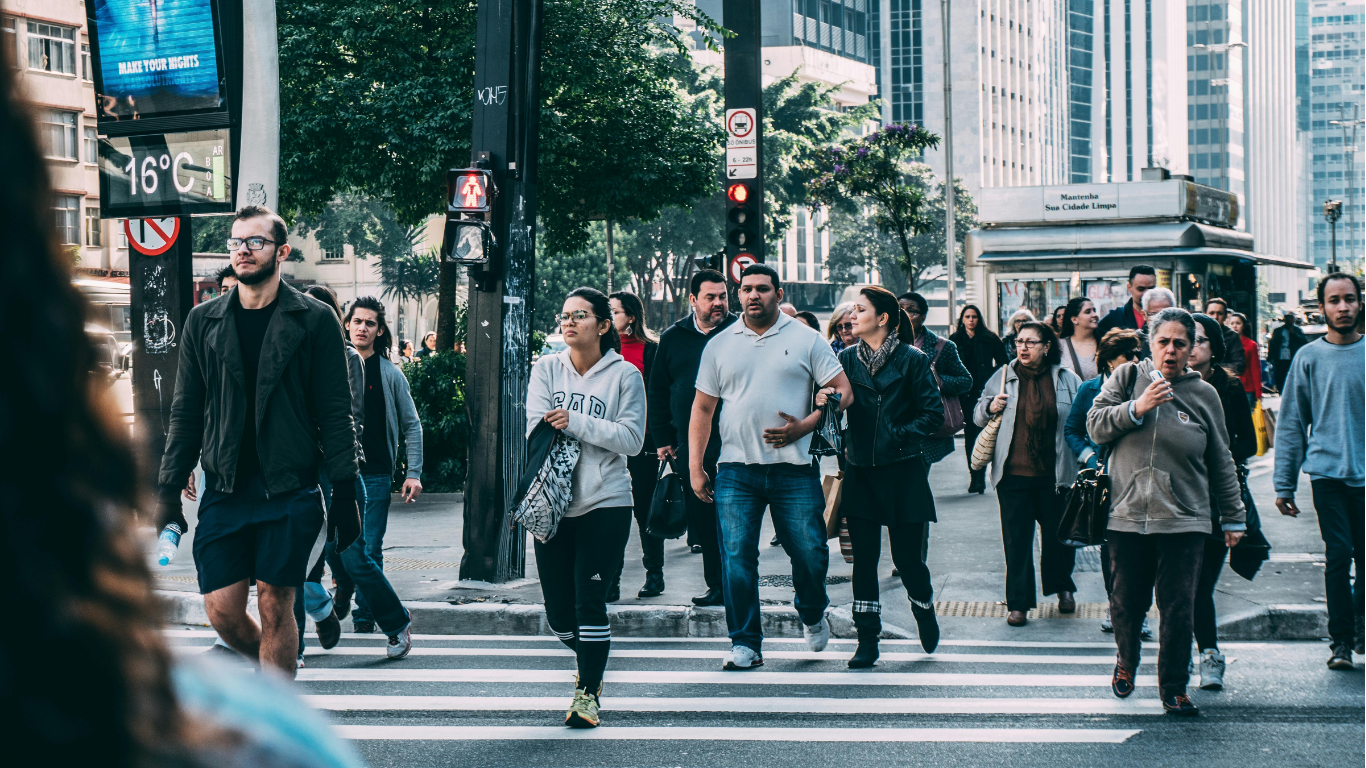We live in a world flooded with sleep advice—some of it helpful, much of it outdated or just plain wrong. From the sacred “8-hour rule” to the idea that snoring is harmless, many common beliefs about sleep sound logical but don’t hold up under scientific scrutiny.
But here’s the truth: poor sleep hygiene, influenced by these myths, is silently sabotaging your health, energy, mental sharpness, and even your fitness progress. It’s time to clear the fog.
In this blog, we’ll break down 10 of the most common sleep myths, unpack the science behind them, and give you real-world strategies to finally sleep smarter—not just longer.
😴 Sleep Cycle Calculator
Calculate the best time to sleep or wake up based on natural 90-minute sleep cycles.
⏰ Ideal Sleep/Wake Times:
Each sleep cycle lasts ~90 minutes. Waking at the end of a cycle helps you feel more refreshed.
💤 Myth #1: You need exactly 8 hours of sleep every night
🔍 What people believe:
Eight hours has become the universal sleep prescription. Anything less? You’re sleep-deprived. More? You’re lazy.
🧠 Why that’s misleading:
There’s no one-size-fits-all. Sleep needs vary based on genetics, lifestyle, activity levels, and age. Some people thrive on 6.5 hours; others feel foggy unless they hit 9.
🔬 The science:
A 2022 UK Biobank study found that 7 hours of sleep was the cognitive sweet spot for many adults. The key? Not just quantity—but consistency and quality.
💡 Takeaway:
Let go of the number. Ask yourself: Do I wake up energized, clear-headed, and consistent in my routines? That’s your real benchmark.
💤 Myth #2: You can catch up on sleep over the weekend
🔍 What people believe:
“I’ll make up for it on Saturday.” Sound familiar?
🧠 Why that backfires:
Your body doesn’t work like a bank account. Sleep debt accumulates, and a weekend binge doesn’t restore what’s lost—or repair the damage.
🔬 The science:
University of Colorado researchers found that “recovery sleep” didn’t fix insulin sensitivity or cognitive decline caused by weekday deprivation. Plus, inconsistent weekend sleep disrupts your internal clock—a condition known as social jet lag.
💡 Takeaway:
Build a regular sleep rhythm, even on weekends. Sleep isn’t a chore—it’s your body’s reset button.
💤 Myth #3: The older you get, the less sleep you need
🔍 What people believe:
Many seniors believe waking early or sleeping lightly is just “part of aging.”
🧠 What’s really happening:
While sleep patterns shift (lighter sleep, more awakenings), the need for restorative sleep doesn’t disappear. Often, poor sleep in older adults is due to pain, medication, or disorders like sleep apnea.
🔬 The science:
Older adults still need 7–8 hours. Chronic sleep loss in aging populations is linked to memory decline, mood disorders, and increased fall risk.
💡 Takeaway:
Sleep is just as essential in your 70s as it was in your 30s. If it’s not happening naturally, don’t ignore it—investigate it.
💤 Myth #4: Napping during the day is bad for your sleep cycle
🔍 What people believe:
Napping is seen as lazy or harmful—especially if you struggle with nighttime sleep.
🧠 Why that’s partly false:
Yes, long or late naps can hurt your night’s rest. But short, early naps are powerful tools for boosting alertness and mood.
🔬 The science:
NASA found that a 26-minute nap improved alertness by 54% and performance by 34%. Naps that last under 30 minutes avoid sleep inertia (that groggy feeling).
💡 Takeaway:
Nap smart:
- Ideal nap length: 20–30 mins
- Ideal window: Between 1–3 PM
- Dark room, eye mask, and optional white noise can help
🧠 Bonus: How to Take a Nap During Work Hours (Without Getting in Trouble)
Napping isn’t just for toddlers—it’s a secret weapon for focus and productivity. Here’s how to sneak in a mini nap during your workday:
🔹 1. Block 25 minutes on your calendar as “focus time”
Label it “Deep Work” or “Creative Recharge.” It’s your nap window.
🔹 2. Use a sleep timer or nap app
Apps like Pzizz, NapBot, or just your phone’s timer can wake you gently after 25 minutes.
🔹 3. Nap upright
If lying down isn’t an option, use a neck pillow or lean against a supportive chair. Even a half-doze helps.
🔹 4. Wear noise-canceling headphones or play pink noise
Helps block distractions, especially in a shared space or office.
🔹 5. Set the tone with a ritual
Dim the lights (if possible), close your tabs, and take 5 deep breaths. It trains your brain to associate the moment with relaxation.
Even a 15-minute nap can reset your brain, reduce stress, and improve performance—without needing caffeine.
💤 Myth #5: Alcohol helps you sleep better
🔍 What people believe:
A glass of wine or whiskey knocks you out faster. What’s the harm?
🧠 What’s really happening:
Alcohol disrupts REM sleep, increases nighttime awakenings, and worsens sleep quality—especially in the second half of the night.
🔬 The science:
A 2018 review found alcohol suppresses melatonin and increases restlessness, dehydration, and early waking.
💡 Takeaway:
It’s okay to enjoy a drink—but finish it at least 3 hours before bed. Don’t rely on it as a sleep aid.
💤 Myth #6: Watching TV helps you unwind
🔍 What people believe:
“I need Netflix to shut my brain off.”
🧠 Why that backfires:
Screens emit blue light, which blocks melatonin, your body’s sleep hormone. Plus, emotional content (doomscrolling or thrillers) stimulates your nervous system.
🔬 The science:
Harvard researchers found blue light delayed melatonin release by up to 2 hours.
💡 Takeaway:
Trade screens for low-light reading, stretching, journaling, or music. Aim to go screen-free 30–60 minutes before bed.
💤 Myth #7: You can train yourself to need less sleep
🔍 What people believe:
“Sleep is for the weak”—so let’s just hustle harder.
🧠 Why that’s dangerous:
Chronic short sleep leads to impaired immunity, brain fog, and even heart problems—even if you feel “fine.”
🔬 The science:
A 2020 PNAS study showed subjects restricted to 6 hours of sleep performed as poorly as those legally drunk—and weren’t even aware of it.
💡 Takeaway:
Your body doesn’t adapt to deprivation—it quietly breaks down. Sleep is fuel, not a luxury.
💤 Myth #8: Snoring is harmless
🔍 What people believe:
It’s just loud breathing, right?
🧠 Not quite:
Snoring can be a red flag for obstructive sleep apnea, which limits oxygen flow during sleep and increases heart risk.
🔬 The science:
People with sleep apnea are at higher risk of stroke, hypertension, and early mortality. It’s often undiagnosed for years.
💡 Takeaway:
If snoring is loud, persistent, or paired with gasping and fatigue—get evaluated. Sleep studies save lives.
💤 Myth #9: More sleep is always better
🔍 What people believe:
If you’re still tired, you must need more sleep.
🧠 That’s not always true:
Oversleeping regularly (9+ hrs) can signal underlying issues like depression, poor-quality sleep, or chronic illness.
🔬 The science:
Long sleep durations are linked to higher inflammation, lower energy, and increased disease risk in several studies.
💡 Takeaway:
If you sleep too much and still feel exhausted, check your sleep quality, mental health, and lifestyle.
💤 Myth #10: Waking up during the night means you have insomnia
🔍 What people believe:
Any disruption = bad sleep.
🧠 Why that’s false:
Waking briefly during the night—especially between sleep cycles—is completely normal.
🔬 The science:
Our sleep naturally moves through cycles. You may wake 2–4 times without even remembering. It’s only a problem if it leads to prolonged wakefulness or daytime fatigue.
💡 Takeaway:
Don’t panic if you wake up at 3 AM. Stay calm, avoid screens, and trust your body’s rhythm.
🌙 Final Thoughts: The Truth About Sleep
Sleep isn’t just a nightly ritual—it’s a biological necessity that fuels cognitive sharpness, emotional stability, muscle recovery, and metabolic health. These myths have shaped how we treat rest for decades—but they’re long overdue for correction.
The goal isn’t to sleep “more”—it’s to sleep smarter, deeper, and more consistently.


